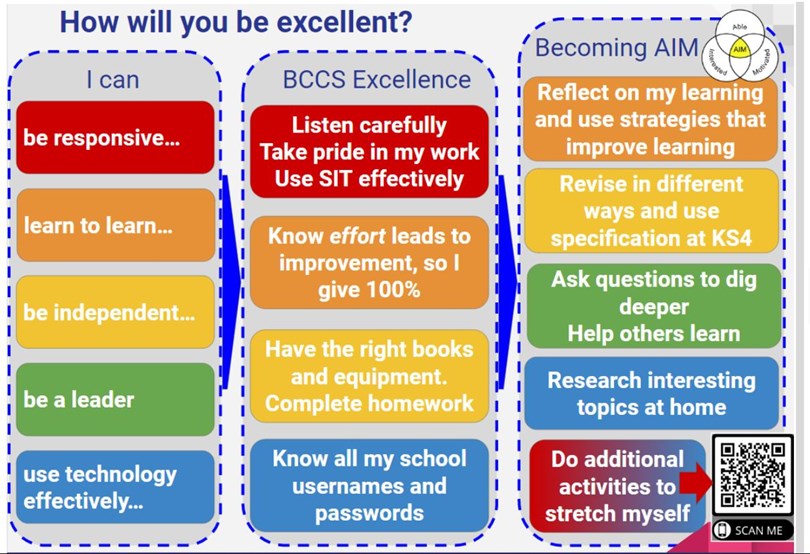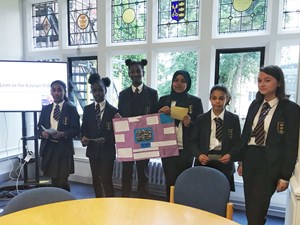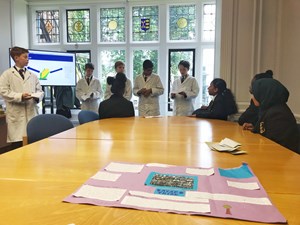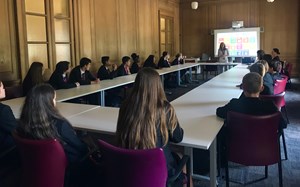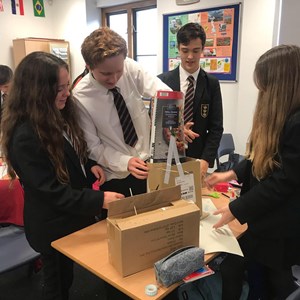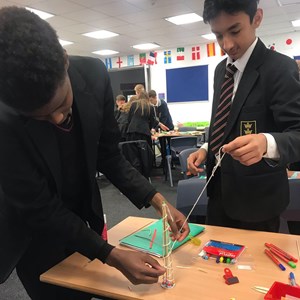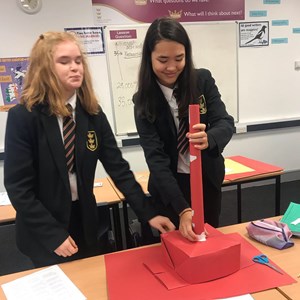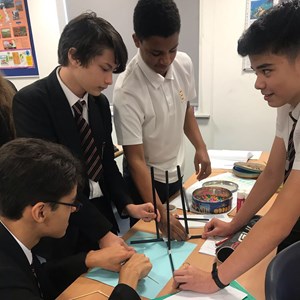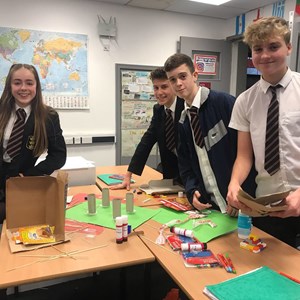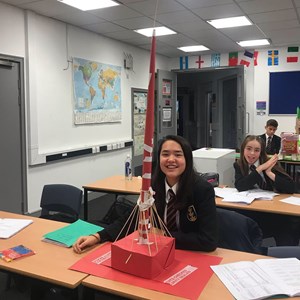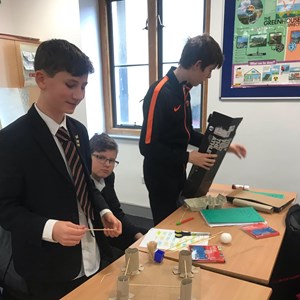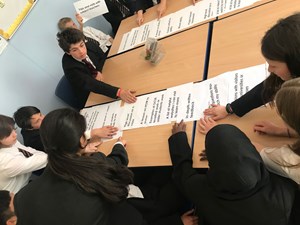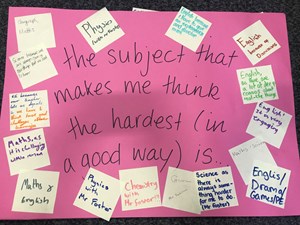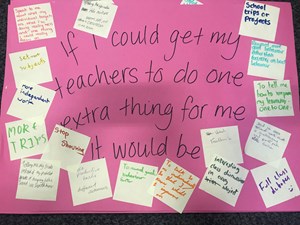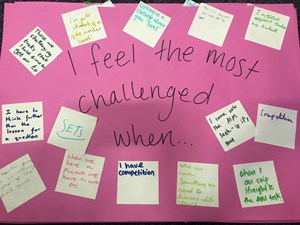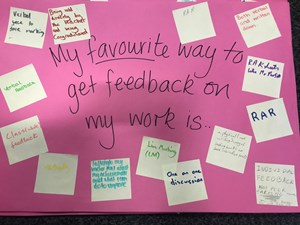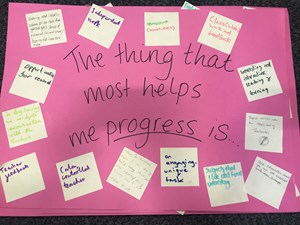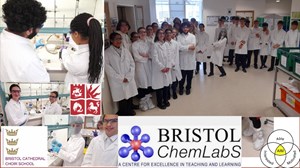School AIM
'A rising tide lifts all ships'
Highly able students are defined as students with high attainment, but also those with the potential for high attainment. Harnessing the potential of this group is an important goal for the education system. In England, since the previous ‘gifted and talented’ programme ended in 2010, there has been no national programme for the highly able. However, many schools, charities and other organisations do continue to run programmes to support this group. At Bristol Cathedral School we strive to offer provision for our most 'able, interested and motivated' (AIM) students through a diverse and differentiated curriculum where students are challenged to be ambitious and to think of themselves as leaders of the future. .
A cohort of 'School AIM' students have been identified in each year group through CAT score analysis, and other measures, for the purposes of tracking overall effectiveness of our AIM provision. This includes ensuring pupils across our diverse community are represented, and considerable thought is put into how we can not only identify AIM students, but also create them. The progress of these School AIM pupils is monitored by the School Coordinator for AIM students, Robert Essex (reporting to the Head of Teaching and Learning), and staff are regularly updated with who is and is not working to the expected high standard and are given suggestions on how to stretch and challenge AIM students.
Identifying Students who are AIM
Our provision for AIM students does not focus on a particular set of pupils (other than the group we use for tracking), but rather is flexible so teachers can provide AIM activities and trips that support the right students at the right time. This may involve anything from a subject trip, such as a visit to Bristol ChemLabs for the separate science Chemistry classes, to an extension task in class to stretch the more able students in a Maths class, to further education advice about how to apply for a top music Conservatoire. Classroom teachers and tutors will regularly be given the opportunity to identify students as suitable for AIM activities based on their current ability, interest and motivation.
Furthermore, students are encouraged to self-identify as AIM by developing AIM behaviours as identified in the “How will you be Excellent” poster displayed around the school, and by joining the AIM google classroom (Join code achmisc, or use the QR code on the poster).
How to support an AIM student
Parent, Carer and Community support
The support of a student’s family and the wider community play a significant role in student attainment. Research suggests that effective parental acknowledgement of a child’s high ability can have a profound impact on their achievement and also their self-esteem. Although it should be stressed that praising a student’s ability needs to be framed in the context of their “ability” being the outcome of all the hard work and critical thinking that the student has put in. This helps the student see the connection between effort and achievement and so encourages continued effort and supports future improvement (5). While we appreciate it can be difficult for parents/carers to support students academically, in all areas, we would encourage you to talk through what is being studied at school so students have the opportunity to retrieve what they have learnt and practise subject specific language. If you need some ideas about how to support your child in specific subjects, please contact their tutor or subject teacher for some ideas.
Extracurricular activities also have the potential to develop both academic skills, and essential life skills which can help highly able students to succeed – such as confidence, motivation, resilience and communication skills. Taking part in extracurricular activities, both in and out of school, has been found to be associated with higher academic attainment and greater future earnings (1). However, it is suggested that low-income students are less likely to have access to such activities. (2,3) Therefore, interventions and free extracurricular activities through school can ensure that disadvantaged highly able students have access to activities that could potentially help to close the gaps between these students and their better-off peers. At BCCS we offer a range of after-school clubs and lunch time activities. Studies have also raised concerns that highly able students may not want to engage in programmes or interventions because they want to continue to fit in with their friends and wider peer group, who are not as able (4) and that students may drop out of programmes because of these worries. Please support the school by reinforcing the value of school interventions and extracurricular activities.
In addition, we would encourage you to seek out the amazing historical, cultural, and educational life of Bristol City, and enjoy time with your child in some of Bristol’s amazing parks, museums, art galleries and events.
Ultimately, students need to know that parents/carers are proud of who they are and not just how hard they work. Their success at school should not become the centre of the relationship between parent and child. Students need to be allowed to ‘fail’ and make mistakes – they are a necessary part of growing up and learning to embrace a growth mindset. Indeed, parents should facilitate reflection on ‘failures’ to encourage a resilient approach to learning.
References
1 Potential for success. Fulfilling the promise of highly able students in secondary
schools, Dr Rebecca Montacute , July 2018
2 Birdwell, J., Scott, R. & Koninckx, D. (2015) Demos: Learning by doing.
3 Olszewski‐Kubilius, P. & Lee, S. (2004) Parent perceptions of the effects of the Saturday enrichment program on gifted students’ talent development. Roeper Rev. 26, 156–165
4 Stormont, M., Stebbins, M. S. & Holliday, G. (2001) Characteristics and educational support needs of underrepresented gifted adolescents. Psychol. Sch. 38, 413–423.
5 Carol Dweck, speaking about this idea here: https://www.youtube.com/watch?v=hiiEeMN7vbQ


